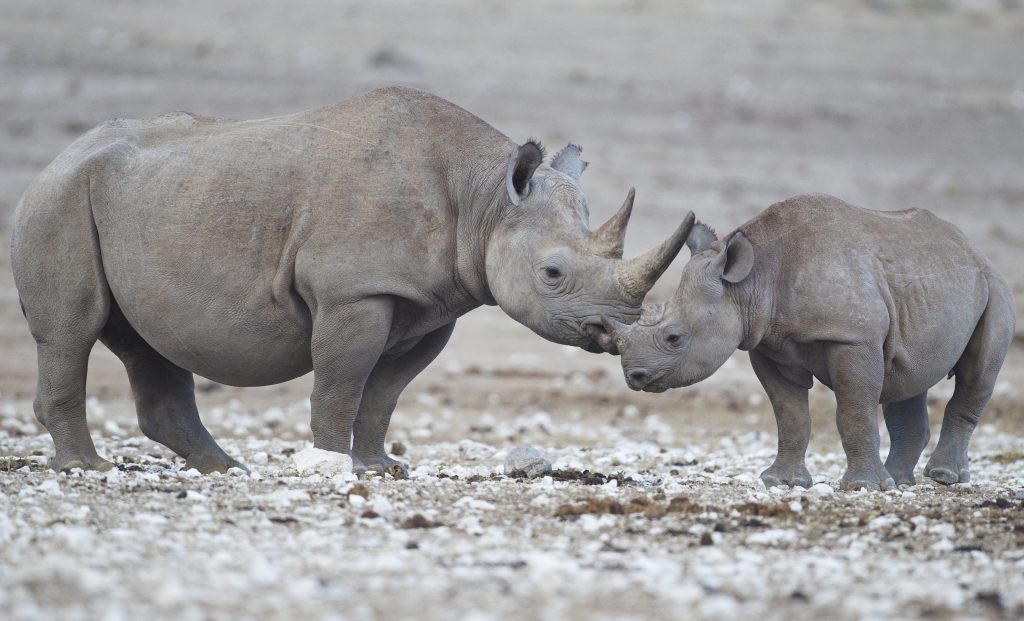The health issues of captive black rhinoceros aren’t too far off from human health problems, a recently published study reveals. According to its findings, captive black rhinos are at a much higher risk for metabolic conditions such as inflammation and insulin resistance than rhinos that live in the wild.
The study, published in General and Comparative Endocrinology, was authored by Dr. Pam Dennis, clinical assistant professor in Veterinary Preventive Medicine, and veterinary epidemiologist at Cleveland Metroparks Zoo along with her research team. They analyzed blood samples from 86 captive rhinos and 120 wild rhinos, and in all cases the captive animals’ blood had more markers for disease.
The species is critically endangered, according to the World Wildlife Foundation, with a global population of 4,848. Helping black rhinos in zoos to live longer, and develop metabolic conditions less frequently, would be one conservation effort. Another is to stop the illegal poaching and trade of rhino horn, which is the species’ greatest threat. Between 1970 and 1992, 96 percent of Africa’s black rhinos were killed, according to the World Wildlife Foundation.
“We are providing good, nutritious, high-quality food. And we may be overdoing it. We’re just learning that providing high-quality food in excess can cause problems,” Dennis said. “Knowing what we know now, how do we manage these animals in zoos in ways that decrease health risks? I think we’re going to have to manage their nutrition differently.”
In 2012, the college created a residency program for Conservation Medicine and Ecosystem Health through a partnership with the Wilds and the Columbus Zoo and Aquarium, allowing students to explore the intersections of animal health, environmental health and human health. The program is led by Dr. Barbara Wolfe, associate professor of Veterinary Preventive Medicine. Wolfe also co-authored the black rhino study.
Additional co-authors are Mandi Schook, associate research curator at Cleveland Metroparks Zoo, David Wildt of the Smithsonian Conservation Biology Institute and Mary Ann Raghanti of Cleveland Metroparks Zoo and Kent State University. The research was supported by the Morris Animal Foundation, a Philip D. Reed Jr. Fellowship, Conservation Centers for Species Survival and Cleveland Metroparks Zoo.
Read the university’s news story on the study here. This story was also featured in Daily Mail, UK: click here to read.


Comments are closed